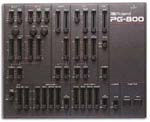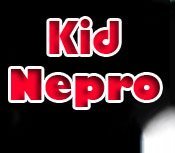The last "true analog synth" produced from Roland during the late 80's was the Roland JX10 and rack mount version MKS70. Also known as the "Super JX". They sold between 1985-1989. The JX10 was the first Roland Synth that included a 76 note keyboard with velocity and aftertouch. When the Super JX was first introduced they sold for just under $2000. US dollars. Being a poor musician, I picked up mine (the MKS70) in 1989 when Sam Ash had one of their "blow out's" for $500.
The Super JX combines two individual JX-8P's for an fat, analog sound that's great for basses, leads and pads. It could also do a decent electric piano and string sound as well as some interesting synth effects. It's synth engine consisted of two DCO's per voice, two ADSR envelope generators per voice and a resonant low pass & non-resonant high pass filter. It also has 12 voice polyphony for a total of 24 oscillators.
With the absence of knobs and sliders the Super JX was difficult to program from the front panel. However, the PG-800 programmer let you access all the synths parameters via the knobs and sliders for quick and easy editing. We also like to use MOTU's "Unisyn". Which has a great computer editor included for the Super JX.

Roland PG800 Programmer
Also onboard is a 1-track sequencer! It stores sequence data directly to an M16C card or an M64C card for Patch/Tone Or sequence data. The M16C has a capacity of 400 notes, the M64C 1440. The Super JX will hold 64 patches in it's memory. An additional 64 patches and tones can be stored on a M64c RAM cartridge, although I would not recommend using the old RAM cartridges at this point since they have not been made in many years and even if you do come across one there is a good chance that the battery has died. Getting inside to change the battery is not an easy task since Roland sealed the cartridges instead of providing a simple screw to open it up. Best to store all your sounds on your computer hard drive via a system exclusive (sysex) dump if you can.
Please note that the JX-10 can not be edited via SysEx, however MKS-70's tones can be edited through MIDI. This is not possible on the JX-10 due to its incomplete SysEx implementation. You can fix this by updating the JX-10's operating system although I'm not sure if Roland still supports that. JX 10 owners should note this before purchasing any sounds. If your not sure if your JX will load in the sounds via midi then download our free demo patches and check it out.
Sounds are available as system exclusive or standard midi files. If your computer has a midi interface or sound card connected to the USB port, you can use your midi interface to load in the sounds. Sorry, but we no longer offer the sounds on the M64c cartridges for the reason mentioned above. We have also done extensive sampling of the Super JX over the years and many of the sounds are available in WAV, Akai, Reason or Kontakt formats so it's the next best thing if you don't happen to have a vintage JX in your collection. Just click on the above "catalog" link to get to our main catalog where you can find everything. Our sounds will also get you back in business if your JX10 or MKS70 battery has died and you lost all the sounds in the memory.
If your just getting into synthesizers and on a budget, a used MKS70 or JX10 is worth looking into.
